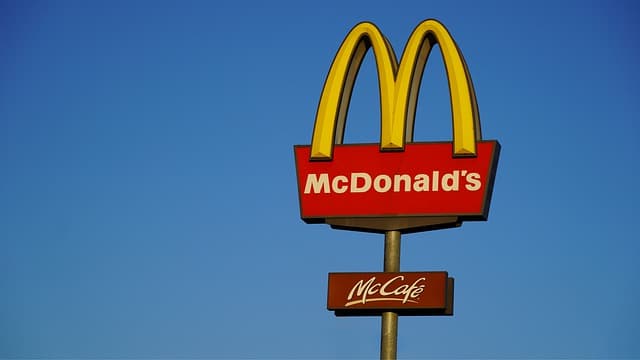
McDonald's is one of the best-known franchises in the world.
The word franchise has multiple uses, although it must be said that all the meanings are related. It is, for example, the permission that grants someone the rights to exploit a product , a brand or an activity . This grant can be given by a company to one or more individuals in a specific area.
By acquiring the franchise, the person can exploit it commercially but respecting a series of terms and conditions. In this way, you benefit from having a business that is usually recognized by consumers. Franchises maintain the same quality of products and services in all their branches.
The franchisor is the one who grants the franchise to the franchisee. To do this, it authorizes you to use the license of a brand and its business methods in exchange for a royalty or a recurring fee .
Examples of franchises
The McDonald's fast food store, for example, is one of the best-known franchises and guarantees that the customer will have the same type of food in any of its restaurants worldwide.
NBA teams are also franchises. Unlike the clubs that exist in most of the planet, these teams are brands whose owner can sell them or move them from one city to another. The objective of an NBA franchise, therefore, is to obtain sporting success, but also economic benefits.

Unlike most leagues in the world, NBA teams are franchises and not clubs.
Keys to the election
When you want to start a business or project , choosing the right name to achieve good promotion and therefore success in such an endeavor is essential. There are many tips that can be useful for such an action, and here we present some of them.
Before starting, we must keep in mind that investment is a priority when setting up a company, but it is also important to know how to look into the future and understand which activity or sector in the market will have a guaranteed space in the commercial world and which brand You will be able to have moderately assured success. To achieve this, it is essential that the entrepreneur informs himself in detail and does not allow himself to be carried away by fashion; Having access to market study data is essential to be able to consider a feasible venture.
The entrepreneur's possibilities when choosing a franchise are many, and with the economic crisis, financing has become more flexible towards projects that imply a certainty of success, especially those that are backed by prestigious brands.
Invest in a franchise
In a franchise, the investment is one of the starting points that must be considered and analyzed in detail; It must be adjusted to the needs of the entrepreneur, since he may depend on it to carry out his business plans. In any case, one of the most common pieces of advice is to have at least 30% in own resources in order to avoid getting into excessive debt. On the other hand, business for business's sake does not work ; It is necessary to feel attracted to the sector to be able to collect achievements that go beyond the economic and inspire security in consumers.
The entrepreneur must clearly know the peculiarities of the system ; For example, if you set up a store within a chain, the chances of getting ahead are greater by becoming part of an already accredited business, reducing the risks. However, it has disadvantages such as reducing freedom, since certain rules established at the beginning of the collaboration must be followed and the owner of a store does not have the power to make changes, no matter how appropriate he considers them. Therefore, it is essential to be aware of all the obligations that are acquired, such as payment of royalties , conditions of attendance, forecast results, and everything related to the new venture.
Knowing how to choose the sector and the brand is key to starting at a fast pace and manifesting irrevocable growth; Surely the strongest sectors are those of aesthetics and restoration. The least recommended are those that can ensure temporary success, as is the case of real estate, which in recent years has plummeted.
Other uses of the concept
On the other hand, a franchise is the exception with which someone benefits by avoiding the payment of the duties corresponding to the products that they enter or take out of the country, or for the use of a certain public service.
It is also known as the excess, the minimum cost of damage that the insurer agrees to cover when signing an insurance contract.
